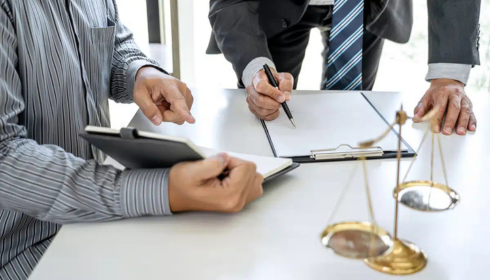There’s something strangely fascinating about how money moves around in a courtroom. Behind every testimony, every polished expert statement, there’s often a silent question lingering — who’s paying whom, and how much? The world of expert witnesses isn’t just about credentials and credibility; it’s about compensation, time, and trust. Let’s unpack how it all really works, without the legal jargon or stiff explanations.
The Role of the Expert Witness
An expert witness is like that one person in your group project who actually knows the subject inside out. Except, instead of a classroom, it’s a courtroom — and the stakes are much higher. These professionals lend their specialized knowledge to help the judge or jury understand complicated issues: medical malpractice, engineering failures, financial fraud, and the like.
But their involvement isn’t casual. They spend hours reviewing documents, forming opinions, preparing reports, and sometimes testifying in court. So, it’s only natural to ask — do expert witnesses get paid for all this? Absolutely.
And not just pocket change. Depending on their expertise, field, and experience, fees can range anywhere from a few hundred to several thousand dollars per hour. After all, these are seasoned professionals who are taking time away from their practice to contribute to a legal process.
How the Payment System Actually Works
There’s no universal formula for paying an expert witness, but the pattern usually follows a few general rules. Experts are typically compensated for the time they spend working on a case — reviewing materials, meeting with lawyers, writing reports, and testifying. They may bill hourly, daily, or even under a retainer agreement.
Some charge higher fees for testimony than for preparation work. Think of it as hazard pay for being cross-examined — because, let’s be honest, testifying under pressure is no easy job.
What surprises many people, though, is that expert witnesses aren’t paid for their opinions. They’re paid for their time and expertise. The integrity of their testimony matters more than anything. A credible expert will not tailor opinions for money — their reputation depends on impartiality.
This balance between compensation and credibility is what keeps the system functioning. It’s a professional service, not a performance.
The Question Everyone Asks: Who Pays?
Now, here’s where things get interesting. When an expert witness is brought into a case, someone has to foot the bill — but it’s not always straightforward. In most civil cases, the party who hires the expert (usually through their attorney) is responsible for paying their fees.
So, if the defense hires a medical expert, the defense pays. If the plaintiff hires an engineer, the plaintiff pays. It’s a transactional relationship, but one that operates under strict ethical boundaries.
Things can get more tangled during the deposition stage, where the opposing side gets to question the expert under oath. And that’s when many people start asking: who pays expert witness fees for deposition?
The general rule is that the party requesting the deposition must pay the expert’s reasonable fee for the time spent giving testimony. It’s basically a “you call them, you pay them” policy. This ensures fairness — no side can exploit the other’s expert without compensating them for their time.
However, “reasonable” is subjective. Disputes sometimes arise when one side claims the expert’s rate is too high. Courts can intervene to determine fair compensation if necessary.
What Goes Into Expert Witness Compensation
To an outsider, it might seem like experts just pull numbers out of thin air when setting their rates. But there’s logic behind it. The expert witness compensation structure reflects several factors — years of experience, level of specialization, time required, case complexity, and even the risk of reputation damage if things go wrong.
For example, a retired FBI forensics specialist or a neurosurgeon may charge more than a general medical practitioner simply because their expertise is rare and in high demand. Similarly, technical experts in fields like cybersecurity, finance, or environmental science often have steep hourly rates due to the complexity of their work.
Preparation time is another major factor. A single case might demand dozens of hours of research, report writing, and analysis before the expert even sets foot in court. So, while the headline numbers might seem high, the reality is that they’re billing for months of accumulated effort.
The Ethical Balance
Money always complicates things, especially when it’s tied to something as sensitive as justice. That’s why expert witness compensation is carefully regulated by ethics rules. Experts are expected to remain unbiased and professional — no matter who signs the check.
If they’re caught tailoring their opinions to please the hiring side, their credibility can crumble instantly. In fact, seasoned attorneys often prefer experts who are brutally honest, even if their conclusions don’t fully align with the lawyer’s narrative.
At the end of the day, the value of an expert lies in their independence. The court isn’t buying loyalty — it’s borrowing insight.
A Human Perspective
Beyond the fees and formalities, it’s easy to forget that expert witnesses are humans, too. Many of them step into this role out of curiosity, passion, or even a sense of duty to the truth. Sure, they’re compensated well, but most don’t view it as easy money. The preparation is exhausting, and the scrutiny is intense.
It’s not unusual for experts to spend nights revisiting case files, double-checking data, and rehearsing testimony — all to ensure they can stand firm when cross-examined. Their reputation, professional integrity, and sometimes even personal pride are on the line.
Final Thoughts
If there’s one takeaway, it’s that paying expert witnesses isn’t about buying opinions — it’s about respecting expertise. The payment ensures that professionals can dedicate their time and knowledge to help the court reach a fair decision.
Whether it’s understanding complex medical conditions, analyzing crash data, or explaining financial models, expert witnesses help bridge the gap between technical truth and legal clarity.
So yes, they get paid. And they should. Because when justice leans on expertise, it needs a foundation built not just on truth, but on time, precision, and professional worth.

